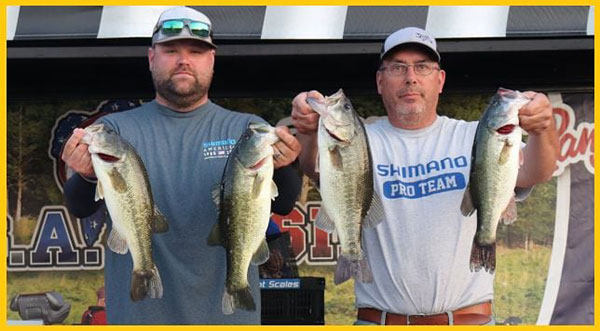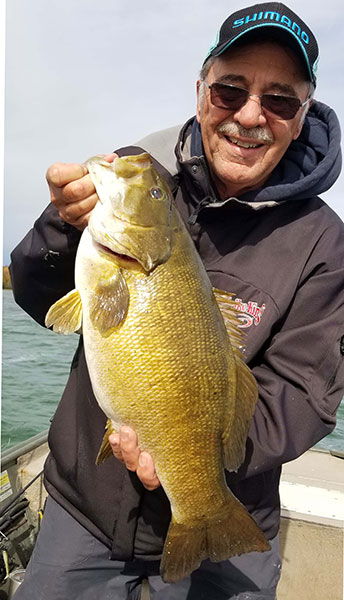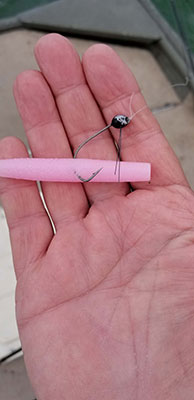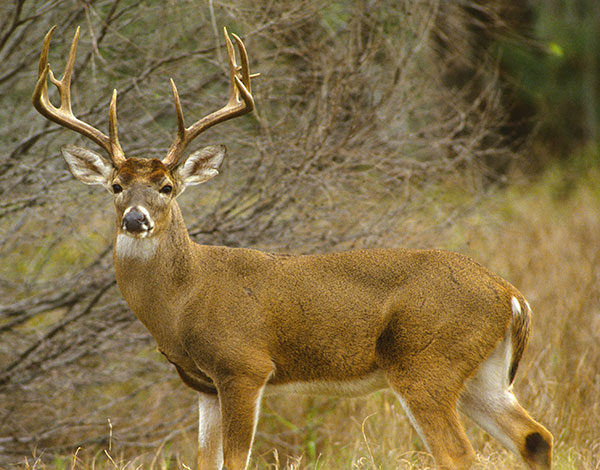- Details
By Louie Stout
 Ron Fabiszak and Jason Fowler of South Bend
Ron Fabiszak and Jason Fowler of South Bend
There’s a perception among many folks that anglers who catch a lot of fish or the occasional big fish are just plain lucky.
We won’t argue that it helps to be lucky, but the truth is that good anglers put themselves in position to be lucky.
That’s what Ron Fabiszak and Jason Fowler of South Bend did a couple of weeks ago to win a $53,000 fully rigged Ranger bass boat and $1,600 cash.
It’s worth noting that they weren’t the only Michiana team to do well. Dave Hoffman of Mishawaka and Mike Minix of Edwardsburg finished third and won $10,000.
Both teams were competing in the U.S.A. Bassin’ Ranger Classic on Lake Chickamauga, Tenn. They earned berths in the championship by doing well in Michiana tournaments and in a regional championship.
There were more than 150 teams qualified for the championship, and this exemplifies once again that Michiana is a hot bed for some of the best bass anglers in the country.
- Details
By Louie Stout
The Indiana Natural Resources Commission (NRC) accepted preliminary adoption of amendments to some deer and wild turkeys hunting regulations and beaver trapping.
The preliminarily adopted amendments include allowing hunters the option of using a 28-, 16-, or 10-gauge shotgun and .410 shotguns to hunt wild turkeys. It also includes having the option of using other equipment that is already legal in the spring and fall turkey season, as well as adding the No. 9 tungsten super shot. Additionally, it removes the restriction requiring the powder used in muzzleloaders for deer hunting to be loaded only from the muzzle end of the muzzleloader.
The NRC also preliminarily accepted removing time restrictions for when beavers may be taken during the trapping season.
- Details
By Louie Stout
 Louie with personal best smallmouth
Louie with personal best smallmouth
It began as a bet more than 10 years ago between two old guys who have been best friends since the early 1960s.
Al Tucker and I, both Kokomo, Ind. natives, had logged smallmouth weighing 6 pounds, 13 ounces. After Al caught his 6-13, the bet was made: whoever catches the next 7 pounder gets a free steak dinner.
Fast forward to a couple of weeks ago.
Jon Howard and I pushed his flat bottom boat into the chilly waters of a small, northern Michigan lake on a crisp autumn morning. The lake has no access, so it took all we had to get the boat into water deep enough to start the shallow-draft jet drive engine and scoot across the lake.
Howard, an Elkhart native, now lives in Petoskey and is Tucker’s condo neighbor. The three of us have fished together for years.
But this day, Al chose to play golf with my wife, leaving Jon and I to fish a lake where Jon has caught several big smallmouth.
 Three-inch pink TRD soft plastic on a 1/16th jig head.Jon rigged up his usual weapon, a goofy three-inch pink TRD soft plastic on a 1/16th jig head. He poked the worm in the middle section to allow the ends to dangle.
Three-inch pink TRD soft plastic on a 1/16th jig head.Jon rigged up his usual weapon, a goofy three-inch pink TRD soft plastic on a 1/16th jig head. He poked the worm in the middle section to allow the ends to dangle.
“They really like this rig on this lake,” he declared.
- Details
By Louie Stout
 Early Deer Harvest Up 20 Percent as Hunters Eye Gun Season
Early Deer Harvest Up 20 Percent as Hunters Eye Gun Season
Indiana’s firearms season opens Saturday while Michigan opens next Sunday.
In the interim, bow hunters continue to rack up kills. Newly-appointed Indiana Deer Biologist Moriah Boggess said the statewide harvest is up 20 percent over the five-year average.
“And it’s probably higher than that in your area (St. Joseph, LaPorte, Marshall, Elkhart and Kosciusko counties),” he said. “The harvest this far into the season is even higher than it was in 2015, which is pretty incredible.”
Indiana keeps real-time stats on the harvest through its mandatory online deer check-in program. At mid-week, St. Joseph County hunters had taken 271 deer compared to 229 over the same period last year.
Harvest was up in all area counties, including Elkhart, up 48, Marshall, up 20 and LaPorte 30 deer.


